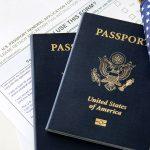Can you inform us the legal system in china?
China’s legal system is closer to a Civil Law System than a Common Law Systemas its creative law-making is undertaken by legislature, not by judges. In the past few decades many pieces of law have been enacted covering contract, labor, intellectual property, foreign exchange control, customs, taxation, banking, consumer protection, bankruptcy, dispute resolution etc.
In China’s court system, there are four levels hierarchically. At county or district level is the basic people’s court. At municipal level, there are intermediate people’s courts, and at the provincial level is the higher people’s court. At the top, is the supreme people’s court. If a foreigner is involved in a legal dispute, he or she can take the matter to an intermediate people’s court at municipal level or above.
Chinese people are relying more and more on laws to govern their civil and commercial activities as legal concepts become more understood. Nowadays, enacted legislation, courts, arbitration commissions and private law firms play dominant roles in resolving civil and commercial disputes in China.
Foreign-Related Legal Matters
If foreigners run into legal troubles in China, they should contact their embassies or consulates in China for assistance. If foreign investors are involved in legal disputes, they should contact their lawyers in their home country and in China for legal advice.
Over 100 foreign law firms had received permits to open offices in China by 1999. Most of these foreign law firms are in Beijing or Shanghai and mainly focus on civil and commercial matters. Foreign lawyers are not permitted to act on behalf of their clients in the people’s courts, but they are permitted to act on behalf of their clients in the arbitration proceedings of an arbitration commission. In addition, parties can appoint foreigners as their arbitrators. The proceeding can be conducted in a foreign language as well. For instance, the proceedings of the China International Economic and Trade Arbitration Commission can be conducted completely in English or any other foreign language chosen by the parties. Interpreters and translators may not be necessary in foreign language arbitration proceedings. From these points of view, it is advisable to take your disputes to an arbitration commission or a conciliation center for resolution rather than taking the matter to a court
What lawful rights and interests and obligations are foreigners entitled to in China?
The People’s Republic of China protects the lawful rights and interests of foreigners within Chinese territory, and while on Chinese territory foreigners must abide by the law of the People’s Republic of China.”
1. Within Chinese territory, the legitimate rights and interests of the foreign visitors are protected by the People’s Republic of China. And the freedom of person of the foreign visitors is inviolable as that of the Chinese nationals. And likewise, all foreign visitors must abide by the law of the People’s Republic of China. Any activities that disrupt public order, disserve public security and infringe upon the interests of the state, of society and of the collective would be punished according to the laws of China.
2. Within the period of validity of their visas, foreign visitors can freely travel the areas open to foreigners. But they should respect the folkways and customs of local areas. While, those who what to visit areas that are not opened to foreigners should apply for a Foreigners Travel Permit from the local public security organ. Only after the approval is granted, can they enter the area legally
.
What shall I do to protect my rights and interests?
The People’s Republic of China protects the lawful rights and interests of foreigners within Chinese territory. If your legal rights and interests are infringed or something unpleasant happens to you, you may complain to related organs.
You can complain to the China National Tourism Administration (CNTA) directly or to the Institutions of Supervision over Quality in each province on following occasions:
1.Your travel agents or hotels or other travel operators offer you poor service or do not follow the agreement;
2. The guides or other travel staffs extort money from you;
3. You are injured or your baggage are damaged or lost due to the fault of the travel operators
Also, all the big tourist cities have set up hot lines for tourists to voice their complaints. Most of the complainants were satisfied with the verdicts, which were arrived at after thorough investigations and verification of fact.
How to ensure our safety during our journey?
Compared with many other countries, China is considered one of the safest countries in the world for personal security. But petty crime has increased in recent year, especially in and around the major cities.
However, serious crime against foreigners is relatively rare. Foreigners are natural targets for pickpockets and thieves, but as long as you keep your wits about you and make it difficult for thieves to get at your belongings, you shouldn’t have any problems. High-risk areas in China are train and bus stations, city and long-distance buses (especially sleeper buses) and hard-seat train carriages. So it is wise to be cautious with your personal possession in public place.
Following are some precautions to avoid potential problems:
– Get as much information as possible about the destination before you come.
– Cooperate with authorities and airport personnel. Expect long waits to get through security check points and keep identification handy for security checks at security gates, airport gates.
– Do not make any inappropriate comments.
– Do not discuss your travel plans or itinerary publicly.
– Be particularly cautious about your possession in crowded areas such as local festivals, markets, tourist sites, railway, bus stations, on trains and buses.
– Always let your hotel or guides know where you are on your free days during your tour.
– Respect the custom of the local ethnic groups.
– Do not quarrel with anyone during your trip. Any disputes should be reported to your local guides for resolution.
– Avoid travelling in any areas or sites that are not open to foreigners.
– Do not voice publicly any opinions contrary to China’s laws and code of ethics and morals.
– If you are unfamiliar with the local language, carry a card or matchbook with the hotel’s name and address. You can show the card or matchbook to a cab driver or police officer if you get lost. Make up several pocket cards with key phrases in the local language. (i.e., “Which way is the airport?” and “Where are the restrooms?”).
– If you will be renting a car, get maps in advance and clearly write out the directions from the airport to your hotel. If you need to stop for directions, go to well-lit public areas. Keep the phone numbers of your destinations with you.
– Be careful when out on the town at night. Watch your drinks being poured and never accept a drink from a stranger. Get advice from your hotel personnel or local guide about reputable restaurants and other entertainment. Avoid being out on the streets late at night. Have your hotel arrange for car service or taxi service and know the addresses and directions before getting in the car.
– Taxis or private car hires are recommended. Most airports, ports and train stations have areas clearly marked for taxis and car service pick-up. Do not enter any vehicle that does not have a proper license or does not pick you up from the designated area.
– Close and lock your hotel room door at all times. Check sliding glass doors, windows and connecting room doors. Acquaint yourself with the location of stairways, fire escapes, exits and alarms.
– Do not answer your hotel room door without verifying who it is. If someone claims to be a hotel employee, call the front desk to verify. Never invite strangers into your room.
– Do not leave your itinerary or other sensitive business information in your hotel room.
what I shall do to ensure the safety of my personal belongings like passport, credit card, jewelry, money and other important documents?
1. Make several copies of your passport, traveler’s checks, credit cards, itinerary, airline tickets and other travel documents. Leave one copy with a relative or friend back home and carry one copy with you.
2. Take most of your money in traveler’s checks and record the serial numbers, denominations and date and location of the issuing agency. Remove all unnecessary credit cards from your wallet. Be sure to carry your credit card company’s telephone number in case your card is lost or stolen. Report immediately if there is any loss.
3. Put your passport and other valuable documents in the safety box inside your room or the safety in the front desk. Never take them with you when you go out for sightseeing. Also don’t leave your valuable things in your bed or the drawer at hotel without being locked, or the hotel is not liable to make any compensation if they are lost or stolen. But remember to take them out on the day when we leave hotel for airport.
Your passport is only needed and required on following occasions:
(1) When checking in the hotel
(2) When exchanging money or cashing the traveler’s cheque
(3) When going through the security check in the airport.
(4) Sometime we also need the passport for getting the board pass and checking in the luggage.
4. Do not show off your money in public.
5. Keep enough money for your immediate needs in your pocket, and hide the rest on your body or leave your backup supply in a safety deposit box at your hotel.
6. Remove any jewelry that may draw a thief’s attention before you go out for strolling.
7. Whenever you use your credit card, keep an eye on it until it is returned to you. Always verify that it is your credit card before storing it again. Check credit cards when they are returned.
8. Never wear a bag or purse on your street-side shoulder in order to avoid becoming a target of the”snatch-and-ride”.
9. Never carry your passport/visa, credit cards, travelers’ cheque or other travel documents in your shoulder bag or bum bag.
10.Ensure that you aware of the values of different local bank notes to avoid being deceived.
What should be done if there is any loss, theft or damage of the luggage?
If you can not find your luggage,first of all make sure that the missing item was not misplaced. In case your luggage is really lost or stolen, ask your guide for help, if serious, report immediately to the police. Yangtze Cruises, Inc is not responsible for any loss, theft or damage to your baggage, so better to take care of the luggage when taking the cruise. Insurance is strongly recommended. Airlines have baggage restrictions and you should check with the air carrier prior to your flight.
What shall I do to avoid getting lost?
China is a populous nation with 1.2 billion people, so all places are full of people, especially in Beijing and Shanghai. So when you go somewhere for visiting, please follow the local guide all time, and don’t go too far away from the group. If you want to buy something or go to the wash-room, please tell the guide, he or she can show you the way and wait for you. If you do not follow the advice and get lost, it is nearly impossible to find you in such a big and crowded place. But in case you get lost, the best way is to stay where you are and the guide will come back to find you or you have to take a taxi back to the hotel.
As most people in China can not speak English, we advise you to bring with you the room card of the hotel when you go out. On the card there is the name of the hotel both in Chinese or English, the address and the telephone number. If you can not find the way back to the hotels, you can call a taxi and show the room card to the taxi driver, the driver will send you back to the hotel.




















